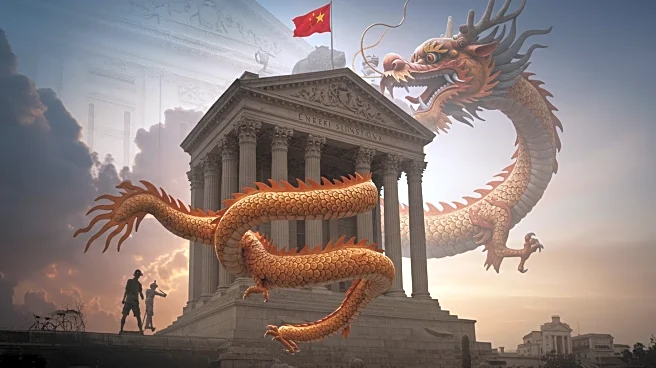What is the story about?
What's Happening?
China has imposed sanctions on two Lithuanian banks, UAB Urbo Bankas and Mano Bankas AB, as a retaliatory measure against the European Union's recent sanctions on Chinese financial institutions. The EU's sanctions, effective from August 9, target entities allegedly supporting Russia's war efforts in Ukraine. China's Ministry of Commerce announced that these Lithuanian banks are now prohibited from engaging in any cooperation with Chinese individuals or institutions. The EU's decision to include Chinese companies in its sanctions list has been criticized by China, which claims it severely damages the legitimate rights and interests of Chinese companies and negatively impacts China-EU economic and trade relations.
Why It's Important?
The sanctions imposed by China highlight the escalating tensions between China and the European Union, particularly in the context of the ongoing conflict in Ukraine. This move could further strain economic and trade relations between China and the EU, potentially affecting businesses and financial institutions involved in cross-border transactions. The EU's sanctions aim to curb support for Russia, but China's retaliatory actions may complicate diplomatic efforts and economic cooperation between the two regions. Stakeholders in international trade and finance may face increased uncertainty and challenges as geopolitical tensions continue to rise.
What's Next?
The ongoing sanctions battle between China and the EU may lead to further diplomatic negotiations or retaliatory measures. Both regions might seek to protect their economic interests while addressing geopolitical concerns. Businesses and financial institutions involved in China-EU trade may need to adapt to changing regulations and potential disruptions. The situation could prompt discussions on international trade policies and the role of sanctions in geopolitical conflicts.
















